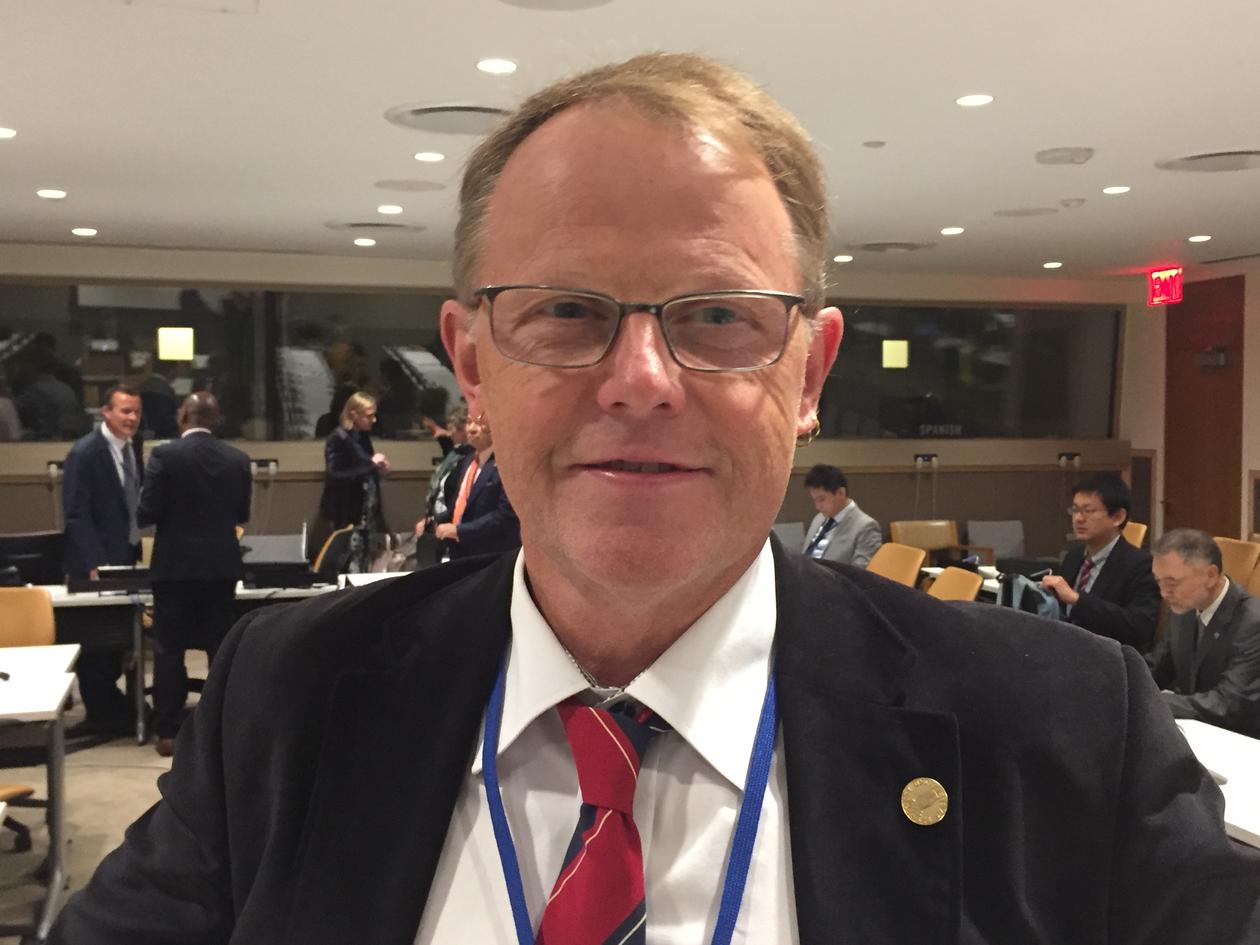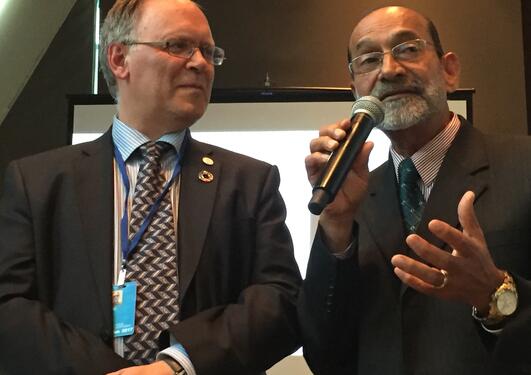Strengthening marine cooperation in Africa
At the United Nations Ocean Conference in New York, the University of Bergen has committed to support a research and education project with South African partners.

Main content
The proposal is for a three-year period, when funds will be earmarked to strengthen research and education in marine subjects. The Nansen-Tutu Centre at the University of Cape Town (UCT) and the University of Bergen (UiB) collaborate on the project, which will mean an increase in the exchange of master's students, joint guidance of PhD candidates and a joint marine research project, with focus on climate and management of natural resources.
“We have worked with UCT and other South African partners for years. The Ocean Conference gives us the opportunity to take a new initiative with the Nansen-Tutu Centre, and this is something that fits perfectly with the goals that UiB has set to strengthen our offers to both student and young researcher in marine subjects, and is at the same time an extension of the long-term commitment that UiB has in development studies and development-based research,” explains UiB's Marine Director Amund Måge.
Partnership and sustainable development
The proposal for this cooperation is presented as a "voluntary commitment" at the United Nations' Ocean Conference, which took place in New York in the first week of June 2017. (See FACTS section.)
“The conference is all about strengthening both existing partnerships and to establish new partnerships. As a university we need to refresh our thoughts about international partnerships on a regular basis,” Måge explains.
“When participating in major conferences such as this one, we must be willing to commit ourselves to implementing measures that are in line with major global developments and not what benefits ourselves in the short run.”
The marine director also points out that the Ocean Conference is important for seafood and shipping countries such as Norway, with a lot to benefit to all if the world can agree on shared rules and mutual agreements to secure sustainable resources in the sea for the long term.
Facts and knowledge are challenged
“The ocean conference is one of the 17 sustainable development goals, or SDGs, set by the United Nations by 2030. This week we discuss the ocean, but the UN is concerned with knowledge and research in several of its SDGs. At UiB, we are pleased to contribute our knowledge and expertise to implementing these goals,” says the marine director.
In a world where facts and knowledge are under attack, it is more important than ever that academia's voice is heard in the public debate and to influence the shaping of society.
“We see that questions marks are raised about scientifically based knowledge, among others in the climate debate. This underlines the urgency to commit to present and use the knowledge universities and research institutions manage on behalf of all of society,” Måge makes clear.
This was one of several “voluntary commitments”, with partners from several countries, that UiB presented at the UN Ocean Conference in New York in the first week of June 2017.


